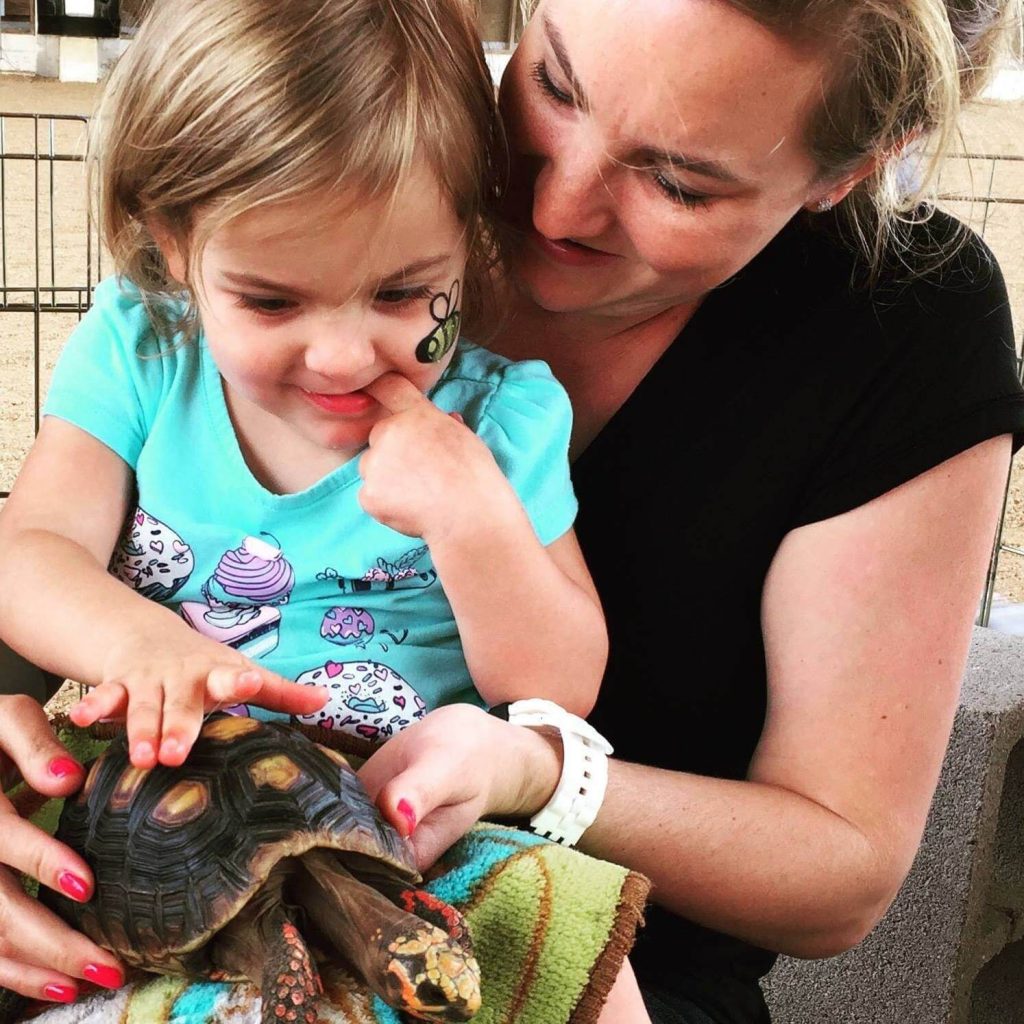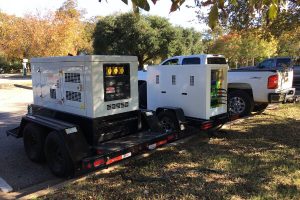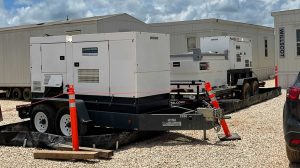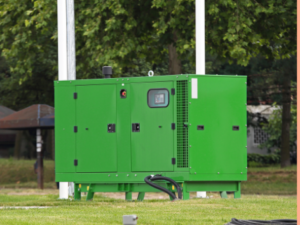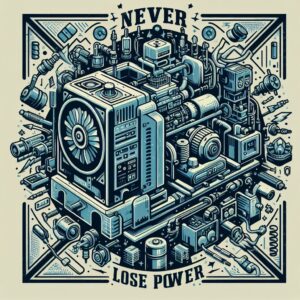“Sometimes it’s okay to just follow the path wherever it’s taking you.”
Many of us don’t often take time to reflect on our careers, what it took to get here and where we’re headed. As part of an ongoing series we’re interviewing professionals who are building Texas and sharing their stories and wisdom for younger professionals to consider as they forge their own careers. Andrea is the owner and founder of Bunker Lee, a residential construction company in Austin, Texas.
JCDP:
How did you get started to get to where you are today?
Andrea Hamilton:
Well, I took a pretty long route to get here. My family was in real estate growing up. My dad had his own home building company and in the 90s went to work for a national builder. And even though I was really interested in residential real estate, I was equally interested in not being in the family business. So I tried a lot of other things. I graduated from college with a degree in accounting, and I went and worked for an architecture firm. It’s tangentially related to real estate, but really had nothing to do with homebuilding at all. I could have taken an entry level job in any field but I really just wanted to to establish my own identity, so I moved to Dallas and worked for this architecture firm, then came back and I had two different stints in nonprofit work.
Then I accidentally got back into real estate. I was working for the Lance Armstrong Foundation (LAF), which at the time was still a reputable entity. When I was working for them, my parents had a friend who needed somebody to do some financial modeling for him in commercial real estate and it happened to be in the same building where I was already working.
My Lance Armstrong position was technically an unpaid internship, even though I was a college graduate already. It was fulfilling work, but didn’t pay the bills. So I worked half day for the Lance Armstrong Foundation and half for this guy doing financial modeling on apartment complex acquisitions. And that led to a full time job. That company was later acquired by CBRE, which is now one of the largest international commercial real estate firms in the world. So it all happened like a domino effect. Since I was at the LAF and was available to help this guy, that guy’s company was bought by this big company, then through the acquisition and the partnership a position became available working with investment sales and real estate. So I did that for about seven years and then I went to work for a nonprofit again for five years. Afterwards I got into the residential side.
I’ve actually thought about if I had just gotten into residential real estate way earlier, where would I be? Because I could have, I had access to all those jobs. But the thing is, I can say with 100 percent certainty, I chose this field because I did try other things. And had I come to it sooner, I might feel differently. I might feel like I was pressured into it through family or my parents connections. And now, it’s all been my choice. And that was important for me to have my own path.
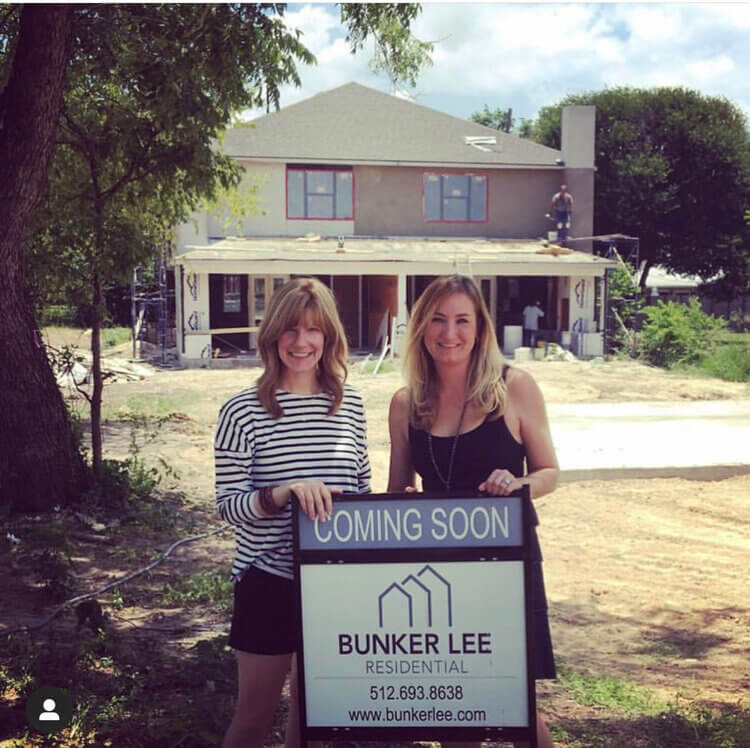
JCDP:
Agreed. Wherever you end up, if it’s an intentional choice, it’s a lot more meaningful for you. It helps to remember why you’re there each day.
Andrea Hamilton:
Yes.
JCDP:
What was the second nonprofit that you mentioned you worked at?
Andrea Hamilton:
Hill Country Conservancy, an environmental nonprofit. That’s here in Austin, Texas.
JCDP:
What was it about commercial real estate that brought you back to it?
Andrea Hamilton:
Well when the nonprofit was started, they got a huge donation from a big company. It was a two million dollar donation. That was a four hundred thousand dollar annual gift for five years. My last year there was the year that pledge was fulfilled. It was 2012 and the economy was in a tight spot.
These were tough times and we weren’t sure if we were going to be able to replace that much money with a new donor. And I was ready to move on anyway. At the time, I was the chief operations officer. I was managing the marketing effort, the marketing and event staff, the membership, and fundraising staff and all those people. I was also involved in the fundraising side, and then one of our donors who worked for a homebuilder here in town knew that I had had a lot of great success helping raise money for the HCC. So he approached me about coming to join their company and helping them put private equity together to raise money for residential real estate development. And it felt like a good transition from one fundraising position to another. In one case it’s more altruistic and in the second way, you’re still asking people for money. But the big difference is they get to get it back later. So I was used to those conversations. I went and did the money raising part but I was really more interested in the tangible products that we were putting out, which were these new homes. And so when my daughter was born, I started my own company.
JCDP:
What were some of the major challenges you had at the beginning of your career and then when you started your own company.
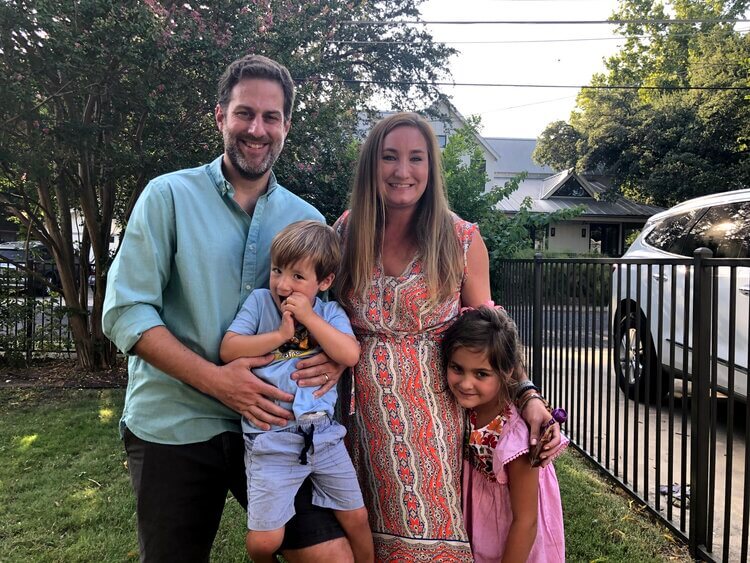
Andrea Hamilton:
I think that for me, I don’t know why I was so obsessed with being independent. But I was and I wasn’t very good at independence, I wasn’t very good at financial independence. I asked for a lot of help from my parents, and I wasn’t really very good at social independence or any of that. But it still mattered to me to be making my own decisions.
And now I get to do that because I own my own company. But at the time that we started Bunker Lee, I was a new mom and I was trying to figure out how to juggle the financial instability that comes with starting a company, with this desire for stability, that comes with having a new child. It’s not only you who have to survive, but also this other person. And I was very lucky, I had a great business partner (Caroline Haley) and I aso had a supportive partner in my husband, so it wasn’t as stressful as it might have been, but it’s been tough at times.
And now it’s almost the same, but it’s a different struggle. It’s still trying to figure out how to do what I really love doing, while at the same time not forcing my family to feel like they are not a priority. That’s a different challenge, I think, for women and men. With what I do with selling and building homes, it’s very demanding work, but it’s also very flexible. And so I’m very hard on myself because I’m not able to get everything done that I need to for work and everything that I need to do for the kids, and I think that internal struggle is something that women feel more than men.
JCDP:
Is there anything that helps you to maintain what you think is an appropriate balance?
Andrea Hamilton:
For me, sticking to a schedule really helps. So I know when I’m supposed to be working or with the kids. And unfortunately for the family, sometimes I have to do both at the same time. But as far as not feeling like a lunatic, knowing when are my designated work times and trying to make the most of them helps. On a typical day, in a typical job, you burn periods of time throughout your eight or nine hours that you’re at the office. So even if you have a highly productive day, you might waste between 30 minutes and two hours of time. Just spotty, here and there, you know, I’m going to take a 10 minute break and talk to somebody down the hall about their plans for the weekend, then I’m going to go back to my desk, I’m going to get all these things done, then I’m going to go run a quick lunch, and then come back. Well, ever since I started my company, which has now been almost six years, I’ve been juggling this family work thing, and I’ve taken all of that free time out of the day. So it has to be highly, highly efficient. But sometimes that’s not realistic so from time to time something does have to give one way or the other.
JCDP:
Was there any particular challenge at that time you were trying to assert your independence and choose what to invest yourself in after college?
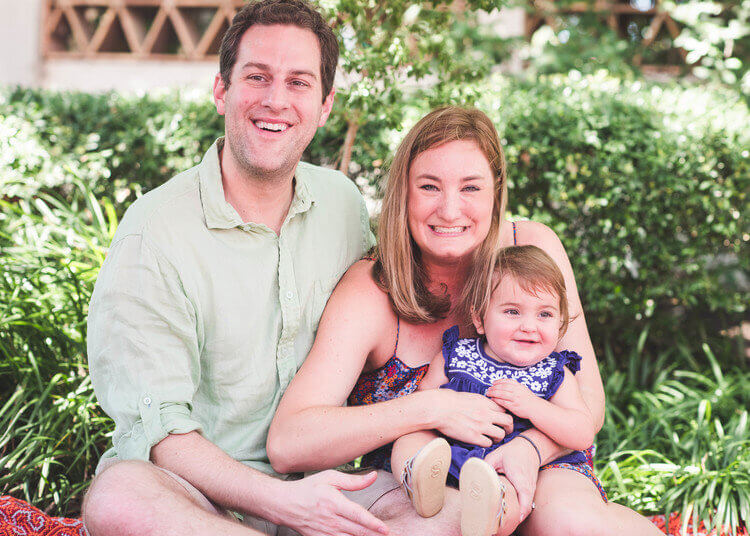
“Take the place that offers you the most personal growth”
Andrea Hamilton:
Not really because I don’t think it was that deliberate. It was just more like I can pursue options that are in line with the family industry or I can not.
And it was just more like, okay, well, if I do this, if I want to do this real estate thing, then I have to ask my parents for help, whereas if I just use my own resources, I’m going to end up in whatever industry I end up in.
JCDP:
How do you see your industry changing? What are you doing to prepare for that?
Andrea Hamilton:
It’s different in the time of Covid versus before Covid. It’s a different answer.
Right now, I think within my industry the implementation of new technology practices are going to be really big.
People are not getting out to see homes right now, that’s Covid related. So we’re trying to put all these things on the internet that weren’t there before. So if I’m trying to build or sell a house, I have to get everything that anybody might want to want to know about this house online. I can’t expect them to come to the property and see it in person to touch and feel everything.
I’m hoping that we get some of that back over time, that we can get people into more houses. But I also think that people are training themselves to be a lot more efficient. And I think that’s a good thing. There was an article in The Economist about how if a shortened workday is a side effect of the fallout that carries over beyond coronavirus, that would be great. So for me, in the past, if I were trying to sell a home to somebody then I might go out on the first weekend to see ten or twelve houses and just get them familiar with the market. Well, that’s like a four to six hour operation on a weekend that nobody really loves doing. But it felt like a necessary part of the business. But if we can figure out ways to make some of that exploration happen digitally, then it all just gets easier.
Then you can do more of it.
JCDP:
Are there any particular technologies that you think are going to be most beneficial?
Andrea Hamilton:
Virtual reality is not really an industry standard, but the tools are getting easier and easier to come by. Some of the equipment is getting cheaper and some of the programming is getting a lot more accessible.
I think where homes are concerned people are always going to want to see and feel the space, but if we can create a virtual experience for them to see and feel the space, then maybe that’s good enough. But that virtual experience has to be really, really good, right? Also, it’s all these other little things, too. It seems so simple, but even like the adoption of digital signatures. It wasn’t that long ago that you couldn’t sign contracts digitally. Now you can, and that doesn’t seem like it should be a technology disruptor, but it is because it takes somebody to drive their car around to bring a contract to the different parties. To be able to do all of those things wherever you are is great.
You can be on site inspecting something and sending and receiving contracts.
JCDP:
I’ve heard that with Corona there’s a de-urbanization of some of the major cities. Is that something that’s happening in Austin?
Andrea Hamilton:
I’m not seeing much of that. But people have this urgent need for more or less space based on being trapped at home for all this time. So no more space is really pretty straightforward, right? You’ve gone from spending 12 to 14 hours a day out of the home to spending 22 hours in the home. And what was enough space for dinner time and a little bit of weekend family time is all of a sudden not enough if everybody has to work there with school and play and all of that. But it’s also happening with people who have too much space because they don’t want to maintain extra space anymore. So people that are empty nesters but like the idea of having a big house for their kids to come home to on holidays have started to say, “you know what? I don’t know if this is really worth it. Do we really want to be maintaining all of these things on our own?”. Putting on a mask so that we can go buy the things that we need to maintain this older home through all of our routine maintenance and putting ourselves at risk. And so they’re having the opposite reactions and thinking “we need less.” It’s been incredibly busy since early May. I think around 400 homes went under contract the first week of April and almost 1,200 went under contract last week. I mean, it’s just an enormous difference now. April was a really weird time in general because it was the very beginning of the outbreak. But still, people have said “I’m done with this”. Which is really great for my business. But it’s an interesting trend because nobody really knew what it was going to do.
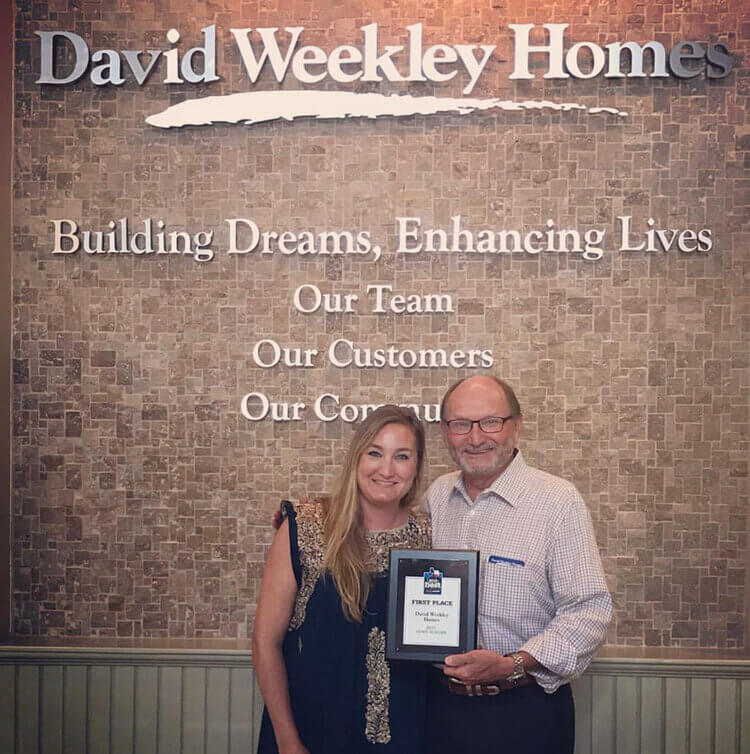
JCDP:
What advice would you give to yourself starting out?
Andrea Hamilton:
Do I wish that I would have done it differently? I probably would say no. My path led me to a great place and I don’t wish for anything different.
But my advice to my younger self might be, lose the attitude. Just understand that everybody ends up where they’re supposed to be. So don’t focus so much on making a mistake here or somebody else wronged you here or how this one thing could have changed everything. I never really felt until I was in my thirties that I owned where I was. In my 20s, I felt like I was where I was because other people put me there, whether it was my parents or my bosses holding me back or pushing me forward.
It wasn’t up to me. And I was really bothered by that. And I guess what I’m trying to say now is, there’s nothing wrong with any of that. Sometimes it’s okay to just follow the path wherever it’s taking you. I just don’t think I took responsibility for my own life until I was in my thirties. And I don’t know if that’s because I didn’t have the capacity as a younger person to do that or if it’s because nobody was really forcing me to do it, despite all my parents’ best efforts. There are lots of ways to display your own independence and take responsibility for your actions. And some of them work better than others.
Well, that’s where I think that I screwed up. It was because I was never really making decisions based on what it sounds like the most satisfying thing for me to do now. It was, “How do I pave my own way?” I was so hyper focused on that. And then when I was in my late 20s, I was trying to get a different job and it was before I went to work at Hill Country Conservancy and I met with a family friend. I had two job options that I wanted somebody to help me think through which one to take.
I wanted somebody new to weigh in. And what she said was “Find somebody who cares about your success. And that’s the only thing that matters, right?”.
If you have two options and one of them is with somebody who’s going to make it a point to teach you and give you intellectual stimulation and challenge you at work and the other one is not going to be able to do that for whatever reason, then take the place that offers you the most personal growth. Forget about which one feels like the most traditional definition of success.
Once I started doing that, I was happier.
Finally, do your own thing and start your own company.
JCDP:
How did you know it was the right time to start your own business and really own that decision?
Andrea Hamilton:
It just happened. But it was always bound to happen because I’m a little bit bullheaded and as Caroline can attest, I’m not a great teammate all the time. And I had this baby and I had the choice of somebody telling me what my schedule is going to be and when I was going to be with my baby and when I wasn’t.
Or I could just do it on my own. And so, the kid was the impetus for starting my own thing. But I needed a nudge because I was very happy with the security that came with working for others.
There is a little bit of instability that comes along with this but there’s also this control that I can get back where I can do whatever I want to do as far as my family is concerned. And I was totally wrong. I mean, I thought that I was starting my own business and I was going to work 20 to 25 hours a week and I was going to be like a part time mom and a part time business owner. And the truth is. The business is full time, but so is the parenting.
I mean, somehow it all equals up to one hundred percent of a day. I think if you’re an entrepreneur, there’s really no such thing as a part time business. All the ads out promising good money with little time investment, and are not probably things to put your hopes and dreams into, because my experience of owning a business is it’s a 24 hour, seven-day-a-week situation. Now, that doesn’t mean that you’re working 24 hours, seven days a week by any means, but if there’s no one else to fall back on then it’s just you. I mean, I have a business partner, so I have one person to fall back on. But that’s just two people, so something goes wrong you don’t get to say, “Oh, well, I’m just going to deal with this on Monday”, you deal with it right then.
It was all just a very natural next step.
